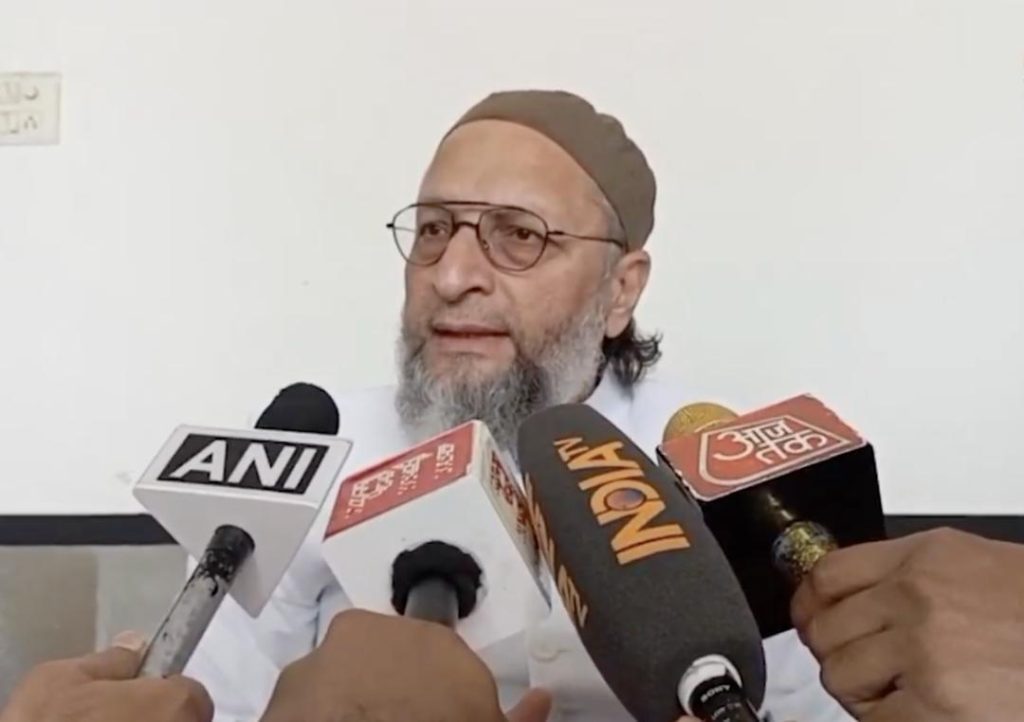
Arrest 4-5 ministers & govt is gone: Owaisi on PM-CM removal Bills
The Indian government has been facing intense scrutiny lately, with various bills being presented and debated in the parliament. One such bill, the Constitution (130th) Amendment Bill, has sparked controversy and raised questions about the powers of the President and the removal of Prime Ministers and Chief Ministers. AIMIM chief Asaduddin Owaisi has been vocal about his concerns regarding this bill, and recently made some startling comments about its implications.
Speaking to the media, Owaisi said, “Just arrest four-five ministers, and government is gone.” This statement highlights his concerns about the potential misuse of this bill, which provides for the removal of Prime Ministers, Chief Ministers, and ministers who have been arrested for at least 30 days. According to Owaisi, this provision is a recipe for disaster, allowing the President to remove the Prime Minister at will.
“What is this?” Owaisi asked, incredulously. “This proposed bill is saying that the President can remove the Prime Minister. What is this? Is this a democratic country or a dictatorship?” He went on to say that this bill is a threat to the country’s democratic fabric, and that it could be used to target political opponents and undermine the rule of law.
Owaisi’s comments have sparked a heated debate about the merits and demerits of this bill. While some have argued that it is necessary to ensure accountability and prevent the misuse of power, others have expressed concerns about the potential for abuse and the erosion of democratic norms.
The Constitution (130th) Amendment Bill is part of a larger package of bills aimed at amending the Constitution and strengthening the country’s democratic institutions. The bill is seen as a key step towards consolidating the powers of the President and the Prime Minister, and ensuring that they are held accountable for their actions.
However, Owaisi and other critics of the bill argue that it goes too far, and that it could have far-reaching consequences for the country’s democratic system. They point out that the bill gives the President unchecked powers to remove the Prime Minister, and that it could be used to target political opponents and undermine the rule of law.
The bill has also been criticized for its lack of transparency and accountability. There have been concerns that the bill was rushed through the parliament without adequate debate and scrutiny, and that it could be used to bypass democratic procedures and undermine the authority of the Prime Minister.
Owaisi’s comments about the bill have sparked a heated debate about the role of the President and the Prime Minister in the country’s democratic system. While some have argued that the bill is necessary to ensure accountability and prevent the misuse of power, others have expressed concerns about the potential for abuse and the erosion of democratic norms.
The debate surrounding the bill highlights the need for a nuanced and balanced approach to governance. While it is essential to ensure that those in power are held accountable for their actions, it is also important to protect the democratic institutions and norms that underpin our system of government.
In conclusion, the Constitution (130th) Amendment Bill is a complex and controversial issue that has sparked a heated debate about the role of the President and the Prime Minister in the country’s democratic system. While some have argued that the bill is necessary to ensure accountability and prevent the misuse of power, others have expressed concerns about the potential for abuse and the erosion of democratic norms.
As the debate continues, it is essential that we take a nuanced and balanced approach to governance. We must ensure that those in power are held accountable for their actions, while also protecting the democratic institutions and norms that underpin our system of government.






